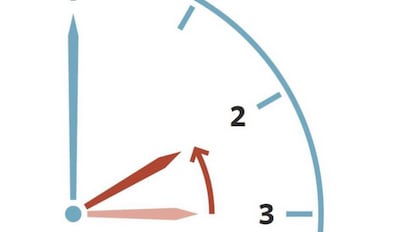The clocks go back this weekend, but could it be one of the last times?
Daylight Saving Time ends on October 28, but the European Union has proposed abolishing the practice in 2019

At 3am on Sunday, October 28, clocks will turn back one hour, marking the end of daylight saving (or summer) time and the start of standard (or winter) time. The move will add an extra hour of sleep and save a marginal amount of energy – or so the theory goes. There are, in fact, many detractors of this twice-yearly time change, and a EU-wide movement to soon abolish it altogether.
Why does the time change?
The time change is due to an EU directive, 2000/84/CE, which says that on the last weekend of October we turn the clock back one hour, and push it forward again on the last weekend of March.
The idea is to adapt our bodies to natural light and save energy, but many people doubt whether any significant savings actually take place. Studies analyzed by the European Commission suggest marginal savings of 0.5% to 2.5% in electricity usage. True, it is lighter out when we go to work in the morning, but darker when we go home again. Added to this is the impact on human health, as many people report feeling more tired and having greater difficulty concentrating in the days following the time change.

Could this be one of the last times?
It could. This past summer, Brussels said it would propose abolishing the time adjustments throughout the EU. This announcement came on the back of a survey in which 84% of 4.6 million respondents said they want to stop changing the clocks.
Two weeks after that, the European Commission said it would like the last mandatory change to take place in March 2019, although individual member states could make one final change in October. No more time adjustments would be allowed afterwards. But such a move first needs approval by national governments and the EU parliament.
What about Spain?
Another recurring debate involving clocks is whether Spain is in the right time zone to begin with.
Many people doubt whether there any significant energy savings
During World War II, Spain and other European countries – save for Portugal and Switzerland – moved the clock forward. Spain’s decision was seemingly a show of loyalty to Hitler and recognition that Germany was now the new master of the continent.
It was meant to be a temporary change, but Spain never went back to GMT. So while geographically Spain should be on the same time zone as the United Kingdom and Portugal, its clocks are in the same zone as countries as far east as Poland, meaning fewer hours of light in the morning, and more in the evening. This has led to unique schedules in which eating times and work timetables can differ significantly from those in neighboring countries.
English version by Susana Urra.









































